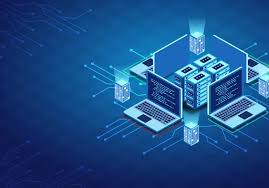Introduction: Artificial Intelligence (AI) is no longer just a concept in science fiction; it’s rapidly transforming industries, enhancing everyday life, and redefining what’s possible in technology. From self-driving cars to personalized healthcare, AI is creating a future that once seemed far away. In this article, we will explore how AI is shaping tomorrow’s world, focusing on key areas of its impact and how it might evolve in the coming years.
1. AI in Healthcare: Revolutionizing Diagnosis and Treatment
AI’s potential in healthcare is vast, and it’s already being used to enhance medical practices and improve patient outcomes. With AI-powered tools, healthcare professionals can diagnose diseases more accurately, personalize treatments, and even predict potential health risks.
- AI-powered Diagnostics: Algorithms can analyze medical images such as MRIs and X-rays with incredible precision, identifying abnormalities like tumors or fractures with greater accuracy than traditional methods.
- Personalized Medicine: AI helps doctors tailor treatments to individual patients based on their genetic makeup and lifestyle, resulting in more effective and targeted therapies.
- Predictive Health: AI is used to predict outbreaks of diseases, track patient vitals, and even detect early signs of conditions such as cancer or heart disease.
2. AI in Transportation: Autonomous Vehicles and Smart Cities
Self-driving cars have long been a topic of intrigue, and AI is making them a reality. AI-powered vehicles are capable of analyzing data from sensors and cameras in real-time to navigate roads safely without human intervention.
- Autonomous Cars: Companies like Tesla, Waymo, and Uber are leading the charge in developing self-driving cars that promise to revolutionize the transportation industry. These cars are expected to reduce accidents, increase fuel efficiency, and make travel more accessible to those who are unable to drive.
- Smart Cities: AI is also being used to improve the efficiency of urban areas. From intelligent traffic systems to predictive maintenance of infrastructure, AI can help cities become more sustainable, reduce energy consumption, and improve the quality of life for residents.
3. AI in Business: Transforming Industries and the Workforce
AI is disrupting the way businesses operate, from automating repetitive tasks to providing deeper insights into customer behavior. In many industries, AI is streamlining processes, improving decision-making, and increasing efficiency.
- Customer Service Automation: Chatbots powered by AI can now answer customer queries, solve problems, and provide personalized recommendations 24/7. This saves businesses time and resources while enhancing customer satisfaction.
- Data-Driven Decision Making: AI analyzes vast amounts of data, extracting valuable insights that can inform business strategies. Companies can predict trends, optimize inventory, and even fine-tune marketing efforts to better meet consumer demand.
- AI in the Workforce: While AI can automate many tasks, it also creates new opportunities. Workers will need to adapt to a changing job market by acquiring skills that complement AI, such as data analysis, AI programming, and problem-solving.
4. Ethical Considerations: The Future of AI Regulation
As AI continues to evolve, ethical concerns about its impact on privacy, bias, and autonomy are rising. It’s essential to establish frameworks and regulations that guide AI development to ensure it benefits humanity while minimizing risks.
- Bias and Fairness: AI algorithms can inherit biases from the data they’re trained on. Ensuring AI systems are free of bias and provide fair outcomes will be critical in building public trust and maintaining ethical standards.
- Privacy Concerns: As AI systems collect and analyze vast amounts of data, ensuring user privacy becomes increasingly important. Developers must strike a balance between using data for innovation and respecting individual privacy rights.
- AI Regulation: Governments and organizations are exploring regulations that ensure AI is used responsibly. These regulations will need to address issues such as accountability, transparency, and the prevention of misuse.
5. The Future of AI: Opportunities and Challenges
Looking ahead, AI’s capabilities will only continue to expand. While there are immense opportunities in areas like personalized education, creative arts, and scientific discovery, the challenges—such as ethical dilemmas, job displacement, and regulation—remain significant.
- AI in Creativity: AI is being used to create art, music, and literature, challenging traditional notions of creativity. As AI becomes more sophisticated, it may collaborate with human creators to produce new forms of art.
- AI and Human Collaboration: In the future, we’re likely to see AI working alongside humans, augmenting our abilities rather than replacing them. By combining human creativity and empathy with AI’s analytical power, we can unlock new levels of innovation and problem-solving.
Conclusion:
Artificial Intelligence is already transforming our world, and its impact will continue to grow in the coming years. From healthcare to transportation, business to ethics, AI holds the promise of a future that’s more efficient, personalized, and connected. However, navigating the challenges that come with this technology—such as privacy concerns, bias, and the ethical implications of AI—will be critical in ensuring that AI remains a force for good. The future of AI is bright, but it must be handled responsibly to maximize its benefits for society.

